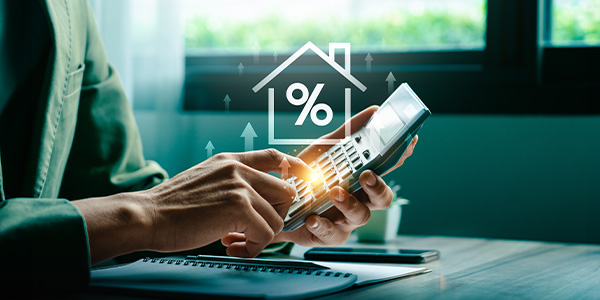Homebuyers
Should I Use My 401(k) to Buy a House?
May 3, 2021
The prospect of buying a home is exciting, but figuring out how to pay for it can be intimidating. If you're looking to buy a house, understanding your financing options will help you get the best deal.
Taking out a 401k loan to cover some of the cost of purchasing a home might be an option, but is it right for you? Here's what you need to know about using a 401k to buy a house.
Can you borrow from 401k to buy a house?
Using a 401k to buy a house is possible but not all plans allow 401k loans. If your plan lets you take out a 401k loan for a house, you can use that money to cover a down payment or closing costs. There are limits to how much you can borrow though, and while using your 401k to buy a house can be advantageous, it also has its drawbacks.
How does a 401k loan work?
A 401k loan gives you the option to borrow money from your retirement savings and repay it, with interest, over time. Your 401k loan rules may differ, but you can typically borrow up to $50,000 or half of your vested balance — whichever is less — with five years to pay it off. When you pay back the loan plus interest, that money goes back into your 401k, so you're simply paying yourself back.
A 401k loan is different from a 401k withdrawal. In most cases, when you make an early withdrawal from your 401k — before age 59½ — you pay income taxes and a 10% penalty. A 401k loan lets you borrow money from your 401k penalty and tax-free, although you do have to pay it back.
Payments are usually made in the form of payroll deductions, making it easy to stay on top of the loan. If you're unable to pay off your 401k loan on time, the remaining balance will be taxed as a withdrawal. If you're below retirement age, you'll also pay the 10% penalty.
How much can you withdraw from 401k for a home?
In most cases, you can borrow the lesser of up to 50% of your vested balance or $50,000. This means that if you have $200,000 vested in your 401k, you can only borrow up to $50,000. If you have $60,000 vested, you can borrow up to $30,000.
Your vested balance is the amount of money you'd be able to keep if you left your current employer. Any money you've personally contributed is automatically vested. The money your employer contributes is usually only vested once you've stayed with the company for a certain amount of time.
What is the interest rate on a 401k loan?
The interest rate on a 401k loan is typically one or two points higher than the prime rate. The prime rate sits at 3.25% as of March 2021, so you can expect the interest rate on a 401k loan to be around 4.25% to 5.25%. Unlike most loans, the interest rate on a 401k loan isn't impacted by your credit, which is why some borrowers prefer these loans.
Can you get a loan from your 401k?
You don't have to have good credit to qualify for a 401k loan, but you do have to have a 401k plan that allows loans. Employers can set up their own 401k loan rules and may not let you borrow money against your 401k plan. Contact your plan administrator to find out whether you can get a 401k loan.
Should I borrow from my 401k for a house down payment?
If you have access to a 401k loan, you'll still want to think critically about whether or not using a 401k for a down payment is best for your situation.
Pros and cons of using a 401k loan for a house
There are several good reasons to take out a 401k loan for a home purchase. It's a low to no-cost option thanks to the fact that you're paying interest back to yourself. Some borrowers may also like the fact that they can get a 401k loan without a credit check. These loans can also be faster and more convenient than traditional loans.
That said, there can be an opportunity cost with a 401k loan. While the interest paid goes into your account, you're losing out on any returns you would've earned while invested. Depending on the state of the market, those returns might be higher than the interest you're paying. Plus, your interest payments aren't considered contributions, so you're putting after-tax dollars into your 401k. It's a good idea to contact a tax advisor before getting a 401k loan.
Leaving your employer or losing your job before you've paid off your 401k loan can create problems. You'll have to repay your remaining balance by the tax due date for that year or risk defaulting.
While defaulting on your 401k loan won't destroy your credit or get you sent to collections, it isn't ideal. The outstanding balance is treated as a withdrawal and taxed and penalized as such. This can significantly reduce your retirement savings.
Overall, deciding to withdraw a 401k loan will depend on your unique financial situation. Start by contacting your 401k plan administrator and your tax advisor to discuss your options. Consider whether saving for a down payment might be better before taking out a loan of any kind. Many states also offer down payment assistance programs that are worth looking into.
If you're ready to buy a home, estimate your monthly payments with our mortgage calculator, and feel free to reach out to our Loan Officers for guidance on today's mortgage rates.






 Smart Moves Start Here.
Smart Moves Start Here.